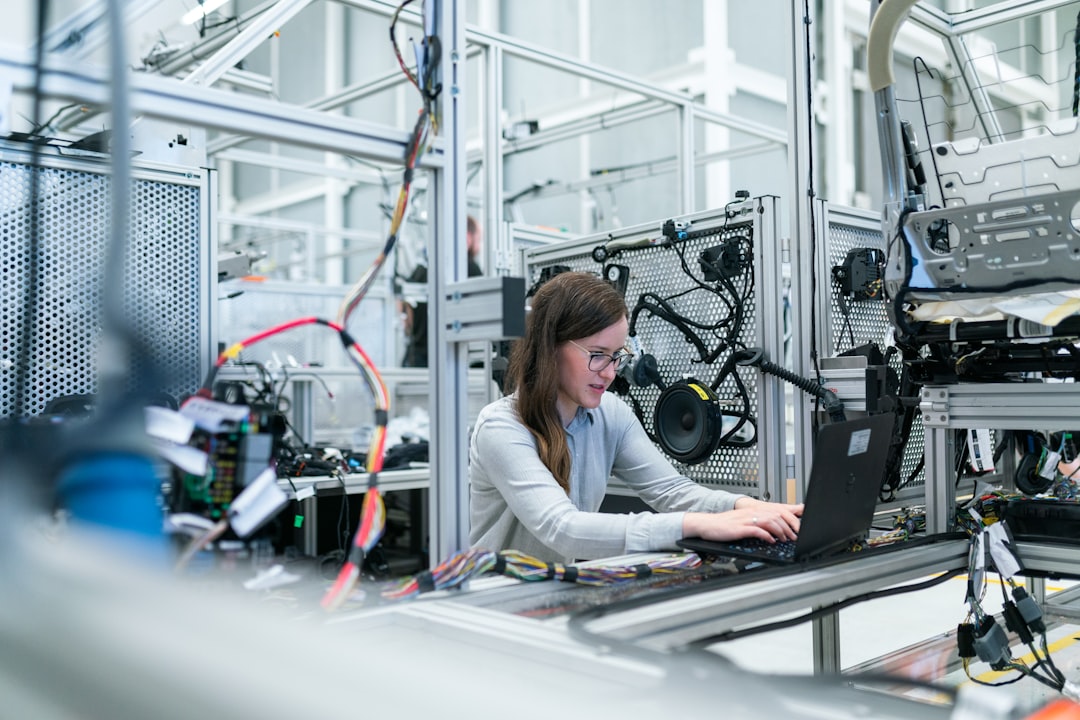
Unlocking the Future: Top Technology Trends Transforming Industries Today
In today’s fast-paced digital landscape, technology is evolving at an unprecedented rate, reshaping industries and altering how businesses operate. The convergence of various tech trends is unlocking new opportunities for innovation, efficiency, and growth. This article delves into the top technology trends transforming industries today, providing insights into their implications and practical applications.
#1. Artificial Intelligence and Machine Learning
Artificial Intelligence (AI) and Machine Learning (ML) are at the forefront of technological advancement. These technologies enable systems to learn from data, identify patterns, and make decisions with minimal human intervention.
Practical Applications of AI and ML
-
Healthcare: AI algorithms analyze medical data to assist in diagnostics and tailor treatment plans. For instance, IBM Watson has been used to help oncologists make more informed decisions about cancer treatments.
-
Finance: Financial institutions leverage AI for fraud detection, risk management, and customer service automation through chatbots, enhancing user experience.
Expert Insight
According to a recent study by McKinsey, businesses that have fully embraced AI could potentially double their cash flow by 2030. This illustrates the transformative potential of AI in driving efficiency and innovation across sectors.
#2. Internet of Things (IoT)
The Internet of Things (IoT) refers to the interconnection of everyday devices to the internet, enabling them to send and receive data. This trend is revolutionizing industries by creating smarter environments.
Case Study: Smart Manufacturing
In the manufacturing sector, IoT devices monitor machinery performance in real-time, predict maintenance needs, and optimize supply chains. General Electric’s Predix platform exemplifies how IoT can enhance operational efficiency, reduce downtime, and lower costs.
The Future of IoT
As IoT continues to expand, industries will see increased automation, improved resource management, and enhanced customer experiences. The integration of IoT with AI and big data analytics will further amplify its impact.
#3. Blockchain Technology
Blockchain technology, known for its role in cryptocurrency, is now being adopted across various industries for its ability to provide transparent, secure, and immutable record-keeping.
Applications in Different Sectors
-
Supply Chain Management: Companies like Walmart utilize blockchain to enhance traceability in their supply chain, ensuring the authenticity of products from origin to consumer.
-
Healthcare: Blockchain improves data security and patient privacy, enabling secure sharing of medical records while maintaining compliance with regulations.
Key Benefits
The decentralized nature of blockchain mitigates risks associated with data tampering and fraud, fostering trust among stakeholders. As organizations explore blockchain, it is essential to consider interoperability and scalability to maximize its potential.
#4. 5G Technology
The rollout of 5G networks is set to redefine connectivity across industries. With its high-speed, low-latency capabilities, 5G facilitates enhanced communication and enables new technological advancements.
Impact on Various Sectors
-
Telecommunications: Companies are investing heavily in 5G infrastructure to deliver faster internet speeds and improved coverage.
-
Autonomous Vehicles: 5G technology is crucial for the development of autonomous vehicles, allowing real-time data exchange between vehicles and infrastructure.
Future Prospects
As 5G adoption increases, we can expect innovations in smart cities, augmented reality (AR), and virtual reality (VR). This technology will drive new business models and enhance user experiences.
#5. Cybersecurity Advances
With the rise of digital transformation, cybersecurity has become more critical than ever. Organizations are investing in advanced cybersecurity measures to protect sensitive data from breaches and cyber threats.
Emerging Cybersecurity Technologies
-
AI-Powered Security: AI is being used to automate threat detection and response, allowing organizations to proactively address vulnerabilities.
-
Zero Trust Architecture: This security model is based on the principle of “never trust, always verify,” ensuring that every access request is authenticated and authorized.
Industry Response
As cyber threats evolve, businesses must adopt a proactive approach to security. Continuous monitoring, employee training, and incident response plans are essential for maintaining robust cybersecurity defenses.
#6. Augmented Reality and Virtual Reality
Augmented Reality (AR) and Virtual Reality (VR) are transforming how businesses engage with customers and employees. These immersive technologies provide unique experiences across various sectors.
Applications in Business
-
Retail: Brands like IKEA use AR to allow customers to visualize furniture in their homes before making a purchase, enhancing the shopping experience.
-
Training and Development: VR simulations provide realistic training scenarios for employees, improving skills without the risks associated with real-world training.
The Future of Immersive Tech
As AR and VR technologies become more accessible, their applications will expand. From virtual meetings to enhanced product demonstrations, businesses will leverage these tools to create engaging experiences.
Conclusion
The technological landscape is rapidly evolving, and the trends discussed in this article are just the tip of the iceberg. Organizations that harness these technologies will unlock new opportunities, streamline operations, and enhance customer experiences. It is crucial for businesses to stay informed about these trends and adapt to the changing environment to remain competitive.
For further reading on these innovative technology trends, consider exploring resources such as the following:
Stay updated on the latest technology trends by subscribing to newsletters, joining forums, and engaging with industry experts. Share this article with your network to spread the knowledge about the future of technology!
Glossary of Terms
- AI: Artificial Intelligence
- ML: Machine Learning
- IoT: Internet of Things
- Blockchain: A decentralized digital ledger
- 5G: The fifth generation of wireless technology
- AR: Augmented Reality
- VR: Virtual Reality
By understanding and implementing these transformative technologies, businesses can unlock their full potential and lead the way in their respective industries.


